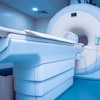
The U.S. Centers for Medicare and Medicaid Services (CMS) on July 7 issued its proposed Medicare Physician Fee Schedule (MPFS) for 2023. Simultaneously, CMS postponed the start of the penalty phase for its mandate on using appropriate use criteria/clinical decision support for advanced imaging studies.
The MPFS governs the payment provisions that CMS uses to determine reimbursement levels for medical services delivered under the Medicare and Medicaid programs. In the new MPFS, the agency proposed a conversion factor of $33.0775, which is down compared with the 2022 conversion factor of $34.6062.
The agency said it determined the new conversion factor by removing the one-year 3% increase mandated by the Protecting Medicare and American Farmers from Sequester Cuts Act, which was passed in December 2022 to stave off what would have been a double-digit cut in reimbursement starting in January 2022. CMS then applied a negative 1.55% update for budget neutrality.
The American College of Radiology (ACR) estimates that if finalized, the new MPFS would result in cuts to radiology and nuclear medicine reimbursement of 3%; to interventional radiology of 4%; and to radiation oncology of 1%, the group stated in an analysis of the proposal.
"If Congress does not intervene to extend the 3% increase provided by the Protecting Medicare and American Farmers from Sequester Cuts Act, the percent decreases mentioned above will be greater for [calendar year] 2023," the ACR said.
Among other changes in the proposed MPFS, the ACR analysis stated that CMS accepted recommendations for 10 radiology-related current procedural terminology (CPT) codes, including for contrast x-ray studies of knee joints, rendering and interpretation of 3D exams, and ultrasound and fluoroscopy guidance. The agency is proposing to refine values for CPT codes related to neuromuscular ultrasound and percutaneous arteriovenous fistula creation.
CMS has also proposed updating its coverage of colorectal cancer screening to line up with new recommendations from the U.S. Preventive Services Task Force (USPSTF) calling for screening to begin at the age of 45 rather than 50. However, CMS made no mention in the proposal of adding reimbursement for CT colonography, the ACR analysis stated, a move that was telegraphed a week prior when it rejected a request by the group to begin coverage.
The proposed MPFS also includes provisions covering the transition to updated clinical labor input values, practice expense data collection and methodology, Merit-Based Incentive Payment System Value Pathways (MVPs), and other federal initiatives.
One thing that CMS did not address with the proposed MPFS is its proposal to adopt appropriate use criteria/clinical decision support (AUC/CDS) for ordering advanced imaging services. However, the agency on July 7 posted an update to its website on the status of the mandate.
CMS had originally said that the current training and education period for AUC/CDS would end at the later of one of two points: either on January 1, 2023, or the first January after the end of the public health emergency (PHE) related to the COVID-19 pandemic. Currently, the PHE is set to expire on July 15.
However, in the July 7 announcement, CMS said that it had no current timetable for when it would begin assessing penalties for not using CDS/AUC.
"The payment penalty phase will not begin January 1, 2023, even if the PHE for COVID-19 ends in 2022," the CMS statement reads. "Until further notice, the educational and operations testing period will continue. CMS is unable to forecast when the payment penalty phase will begin."



















